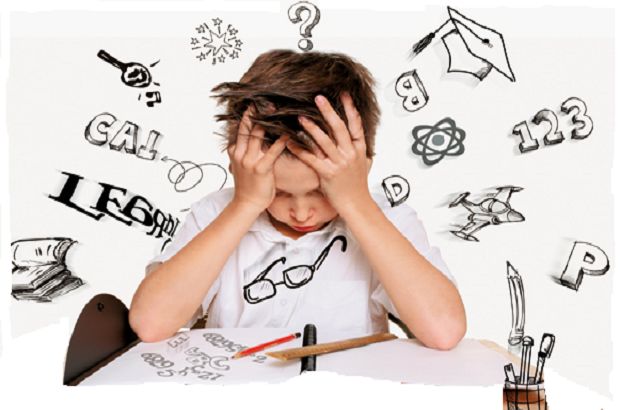What is Specific Learning Disability?
Specific learning disorders are neurodevelopmental disorders that are typically diagnosed in early school-aged children, although may not be recognized until adulthood. They are characterized by a persistent impairment in at least one of three major areas: reading, written expression, and/or math.
Specific skills that may be affected include word reading accuracy, spelling, grammar, or calculation. In addition, fluency in reading and mathematics may be noted. Difficulties with these skills often cause problems in learning subjects such as history, math, science and social studies and may impact everyday activities and social interactions.
Learning disorders are categorized as mild, moderate and severe. Accommodation and support services align with the severity to facilitate a person’s most effective functioning.
Types of Specific Learning Disability
Dyslexia
Dyslexia is the specific learning disability in reading. Children affected with dyslexia find it very difficult to read. It occurs in children with normal vision and intelligence.
Symptoms of Dyslexia in School going Kids
- Reading well below the expected level for age
- Problems remembering the sequences
- Difficulty in seeing similarities and differences in letters and words
- Difficulty in spelling words
- Avoiding activities that involve reading
Dysgraphia
Dysgraphia is a specific learning disability that affects written expression, for example difficulties with spelling, poor handwriting and trouble putting thoughts on paper.
Symptoms of Dysgraphia in School going Kids
- Difficulty in writing letters
- Trouble in spacing letters correctly on the page
- Difficulty in writing in a straight line
- Difficulty in:
- Holding paper with one hand while writing with the other
- Holding and controlling a pencil or other writing tool
- Putting the right amount of pressure on the paper with a writing tool
- Maintaining the right arm position and posture for writing
Dyscalculia
Dyscalculia is a specific learn disability that causes difficulty in learning arithmetic, understanding numbers and doing mathematical calculations. About 3 to 6% of population is affected with some degree of dyscalculia.
Symptoms of Dyscalculia in School going kids
- Difficulty reading analog clocks
- Difficulty in finding which of two numbers is larger
- Issues in sequencing things
- Difficulty with multiplication, subtraction, addition, and division tables, mental arithmetic, etc.
- Problems with differentiating between left and right
- Difficulty with time, directions, recalling schedules, sequences of events, keeping track of time, frequently late or early
- Inability to concentrate on mentally intensive tasks
Dyspraxia
Developmental co-ordination disorder (DCD), also known as dyspraxia, is a condition affecting physical co-ordination. It causes a child to perform less well than expected in daily activities for their age, and appear to move clumsily.
Developmental Aphasia
Aphasia is an impairment of language, affecting the production or comprehension of speech and the ability to read or write. Aphasia is always due to injury to the brain-most commonly from a stroke, particularly in older individuals.
Causes of Specific Learning Disability
- Genetic–There is a higher prevalence of people with SLD passing on the traits to their offspring.
- Neurological Central Nervous System – Information Processing (link to central nervous system)
- Trauma – Before, During, and after Birth–lack of oxygen to the brain during birth air loss due to suffocation/drowning, and other factors can contribute to SLD from a very young age
- Environmental Influences–smoking, lead paint, illegal drugs, prescription drugs (not prescribed by a physician), certain diseases, etc. can cause delays or prevent development in a child (or in some cases an adult) causing SLD.
- Biochemical–some chemicals can contribute to the development of SLD in individuals
- Otitis Media–middle ear infections can cause problems under certain situations
Treatment of Specific Learning Disability
A learning disability cannot be cured. However with timely intervention and support, children with learning disabilities can be successful in school. Parents and teachers are the first persons to notice that the child is finding it difficult to read, write or learn. If you think that your child may have a learning disability, seek help from a mental health expert or other trained specialists for the required intervention program or therapy. Early detection can help the child benefit from treatment or therapy. Neglecting the condition may affect the child’s ability to cope with the condition.
If your child has a learning disorder, your child’s doctor or school might recommend:
- Extra help: A reading specialist or other trained professional can teach your child techniques to improve his or her academic skills. Tutors can also teach children organizational and study skills.
- Individualized Education Program (IEP): Your child’s school or a special educator might develop an IEP that will describe how a child can best learn in school.
- Therapy: Depending on the learning disorder, some children might benefit from therapy. For example, speech therapy can help children who have language disabilities. Occupational therapy might help improve the motor skills of a child who has writing problems.
- Complimentary/alternative therapy: Research shows that alternative therapies like music, art, dance can benefit children with learning disabilities.
Parents and experts need to set goals and assess if the child is improving with the selected mode of intervention and support. If not, alternative methods can be chosen to help the child.
